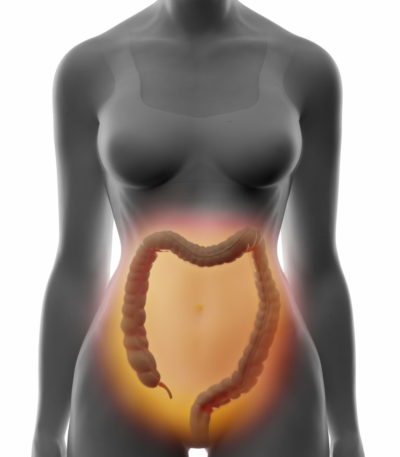Until a few months ago, Irritable Bowel Syndrome was not a term in Missy’s vocabulary. At DDC Orlando, at the age of 39, she has only recently received her true diagnosis. As she sits in her doctor’s waiting room, she bites her lip slightly.

Definite Diagnosis of Irritable Bowel Syndrome Can Actually Be a Relief.
She remembers that as a child, her mother had told her she just had a “nervous stomach.” In later years, her husband called it “a spastic colon.” And her best friend termed her condition “an irritable colon.” Missy herself refers to it with dry humor as bowels-behaving-badly.
According to the Cleveland Clinic, the term “nervous stomach” is often used as another name for irritable bowel syndrome or IBS. The reason is that symptoms can occur at times of “emotional stress, tension, and anxiety.”
Life with Irritable Bowel Symptoms or Bowels Behaving Badly
DDC Orlando welcomes you to our three-part series of blogs on Irritable Bowel Syndrome or IBS. Within the next three blogs, you will learn about the symptoms, possible causes, treatments and risks associated with this condition.
You will also learn three patient’s stories. And you will marvel at their courage in the face of this condition. Although the characters of these three stories are fictitious, they are typical of many who suffer from IBS.
Ironically, they each exhibit individualized symptoms that are quite different from each other. The three patients would be a little surprised to hear they suffered from the same condition because their symptoms are very different.
Three Main Types of IBS
Conveniently named for their predominate symptoms, there are three types of IBS:
- Diarrhea-predominant (D-IBS), which causes abdominal discomfort, or pain, urgency, and diarrhea.This is the type of IBS Missy is experiencing.
- Constipation-predominant (C-IBS), which elicits abdominal discomfort or pain, bloating and constipation.
- And Alternating Constipation and Diarrhea (A-IBS) which combines Intermittent symptoms of D-IBS and C-IBS, and keeps the patient constantly off-guard.
A Diagnosis of Exclusion
IBS is a diagnosis of exclusion. This means that other diseases and conditions must be eliminated (excluded) before the IBS diagnosis can be established.To assist doctors in the complexities of diagnosis of IBS, a group of doctors in 1998 set up guides known as the Rome Criteria. Thus, gastroenterologists have special parameters by which to weigh a patient’s symptoms. They study frequency and duration of flare-ups, blood and stool tests, and much more before diagnosing IBS. The Rome Criteria, “outlines symptoms and applies parameters such as frequency and duration make possible a more accurate diagnosis of IBS. You will see more about it in our next blog. Missy’s team at DDC Orlando was not hasty in their assessment of Missy’s condition.
Missy’s Case of D-IBS and Her Alternate Reality

Irritable Bowel Syndrome: Difficult To Diagnose.
Missy recalls the cramping, pain and diarrhea of her senior prom. A few years later, she chose a tan dress for her tiny wedding for obvious reasons. Missy’s constant battle against diarrhea sets her life schedule.
Missy always carries a large shoulder-strapped purse with (cringe!) baby-wipes, a spare pair of panties, a sanitary pad, slacks and even socks. She is always prepared for a flare-up.
Likewise, she has mapped out her trips to the grocery store, the mall and the elementary school where she works part-time. She is an administrative assistant in the school library.
Sadly, there was a time when she thought she could work full-time. But her condition rules her eating habits and her break times are urgent. She guards what she eats for breakfast and goes home before lunch so she doesn’t have to face lunch with colleagues.
On some days, she is very depressed that her condition has always prevented her from working or teaching full time. However, she prides herself in keeping her handicap secret from all but her immediate superior and the principal. As we have stated, such is the alternate reality of IBS sufferers.
The Alternate Reality of IBS
As she nervously leafs through a magazine, Missy sits near the ladies restroom. She sends furtive glances toward the door when the room is occupied for overly long times. In the past, although everyone seemed to have a pet name for her IBS, very few people had any sound medical advice for her.

Life After Treatment of Irritable Bowel: Diet and Medication
Introverted by nature, Missy has always avoided doctors in spite of her suffering. She was horrified when she discovered one hospital listed her as an emergency room “repeater.” She often believed the disease was all in her head.
It’s such a relief to have a diagnosis and an action plan.
This involves what Dr. Sanjay Reddy of DDC Orlando calls “lots of exciting new pharmacology and diet therapies that can help improve quality of life.”
Her team at DDC Orlando was not hasty in their assessment of Missy’s condition. Diagnosis of IBS must be positively verified. Diagnosis can be difficult due to several conditions that masquerade as IBS. These masqueraders include but are not limited to Celiac Disease, SIBO, Parasitic infestation, and problems with the pancreas.
Additionally, as you can see in many Web MD articles, the symptoms of many conditions include diarrhea, constipation, and weight loss of IBS. The condition could also suggest Lactose Intolerance, Tumors of the digestive system, Thyroid disease, Diverticulitis, Endometriosis or Gallstones. Read more about this issue of diagnosis at this online resource.
Thank you for visiting our blog at DDC Orlando, where we strive to bring you practical news and research that improves your life with your digestive system.
